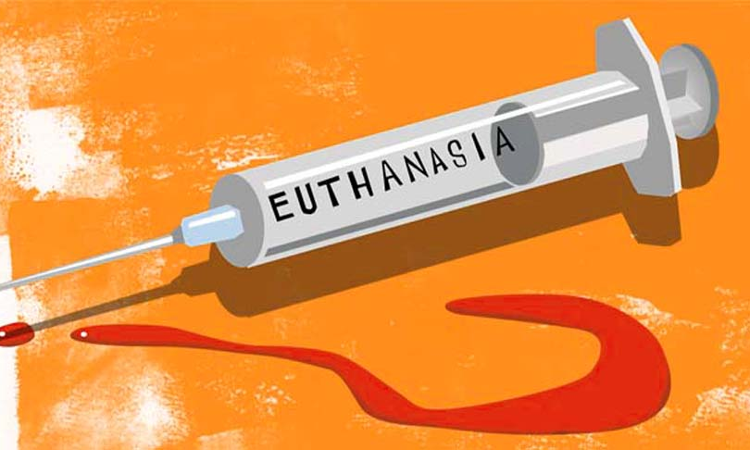MAiD / Euthanasia
Canada’s euthanasia regime has created the ideal conditions for ‘healthcare serial killers’
In a recent column, Alex Schadenberg of the Euthanasia Prevention Coalition highlighted a study published earlier this month by Professor Christopher Lyon of the University of York titled “Canada’s Medical Assistance in Dying System can Enable Healthcare Serial Killing.” Lyon observed that “HSKs” – healthcare serial killers – can often operate for a long time without being detected and “may kill fewer than ten to hundreds of people” and are “often challenging to detect and stop due to job-related access to means of killing, responsibility for record-keeping, trusted role, professional insularity and protectionism, poor oversight.”
Canada’s euthanasia regime, Lyon observed, has created the ideal conditions for HSKs – especially because there are now broad criminal exemptions for euthanasia “providers”:
Beginning in 2016 with ‘no model… without standards, without guidance, without training,’ Canada’s MAiD system is criticized as the most permissive or least safeguarded in the world, raising the question of whether it could protect patients who fit the clinical profile of adult victims of HSK from a killer working as a MAiD provider.
Indeed, like the systemic issues that enable criminal HSK, concerns are frequently flagged that the risks stemming from the Canadian MAID programme’s ambiguous criteria, noncompliance with law and regulation, applications in mental illness, impact on clinical staff, and inconsistent oversight. Accordingly, assessing the Canadian system through the HSK lens is helpful in illuminating gaps in the safeguards and opportunities to prevent abuses by such an offender. This task is critical, as forms of MAiD are available or under consideration in many countries, and Canadian courts seem likely to maintain some form of its constitutional permissibility.
Lyon then noted that many euthanasia providers have disturbingly expressed not just professional satisfaction, but joy in their work. A notable Canadian example, of course, could be Vancouver abortionist and euthanasia practitioner Ellen Wiebe, who has euthanized over four hundred Canadians. (Lyon mentions Wiebe specifically). Interestingly, a 2023 study from the School of Nursing at the University of Victoria by Rosanne Beuthin and Anna Bruce titled “MAiD as a human connection: Stories and metaphors of physician providers’ existential lived experience” adds many disturbing testimonies to the examples Lyon provides. The authors seek to detail “the lived experience” of those killing Canadian patients in Canada.
Consider some of the quotes provided by Beuthin and Bruce in the context of Lyon’s warning. The study noted that for many, the “act of providing MAiD fostered embodied feelings of conviction, courage, compassion, and intimacy.” Providers described their experience of killing in the following terms:
“Uplifting.”
“It doesn’t upset me at all.”
“It’s like an adrenaline rush.”
“I hadn’t expected this”
“It’s amazing. It blows my mind still.”
“It’s almost an adrenaline rush. And I was surprised at how good I felt. It was a little bit weird.”
“Participants’ feeling weird as they processed assisting someone to die may point to a realization of the sacred, powerful control of the fates they are encountering. And I was surprised at how good I felt.”
“It puts me in a good mood.”
It is important to note that the Beuthin and Bruce study is positive towards euthanasia—these quotes are not intended to be incriminating even though the average person finds it deeply disturbing that doctors can be so enthusiastic about ending life.
Now consider what Professor Lyon of the University of York writes in his study:
Sadism may be associated with non-sexual pleasure derived from opportunities for cruelty toward others and killing or harming sentient creatures. Though not always sadistic or sexual, pleasure is also a frequent occurrence of SK, may be addictive, and is a feature of clinical personality disorders. This is important because elation and a sense of liberation from ending suffering are common in HSK. MAiD providers likewise describe positive feelings for gratification from killing, including feeling ‘hyped up on adrenaline,’ ‘very good,’ ‘gratification,’ and ‘satisfaction’ or as, ‘Loving;’ ‘a solitary practice;’ ‘intimate contact;’ ‘heartwarming,’ ‘the most important medicine I do;’ ‘satisfying medicine;’ and ‘rewarding.’… ‘an ultimate act of compassion;’ ‘an honor;’ ‘incredible gift;’ ‘liberating;’ ‘unlike anything I’ve ever ’ and ‘extraordinary work’… ‘the right thing in the right circumstance.’
In Australia, one provider mentions ‘a pressing need for sex’ after a death.
MAiD (as a suicide or homicide) provides opportunities for sadists to cause death to the patient and perhaps cause indirect harm if the provider is aware of a patient using it to emotionally harm people that they dislike (e.g., ex-partners, by scheduling death on their birthdays or weddings). Providers sometimes appear hostile toward witnesses or family members.
I realize that most people instinctively brush off such dramatic-sounding warnings. It is one thing to say Canada’s euthanasia regime has gone too far. But to say that the system is favorable to healthcare serial killers? To draw attention to the pleasure some providers say they get out of ending life? We are uncomfortable with this information, and so we attempt to dismiss it. But perhaps it would be wise to consider the fact that those of us warning about the slippery slope of euthanasia have been right thus far, consistently and on every point. Those claiming that our regime would remain tightly-regulated and that euthanasia would only be available to the dying were wrong on every point – and they do not care.








